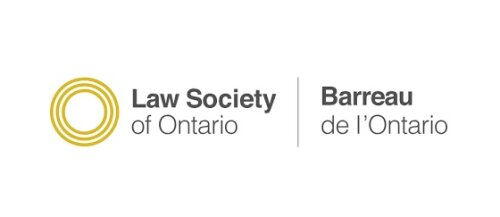Best Bankruptcy & Debt Lawyers in Mexico
Share your needs with us, get contacted by law firms.
Free. Takes 2 min.
Or refine your search by selecting a city:
List of the best lawyers in Mexico
About Bankruptcy & Debt Law in Mexico
Bankruptcy and debt law in Mexico is governed primarily under the Ley de Concursos Mercantiles (LCM), which is designed to provide a fair process for handling insolvency cases. This legal framework allows financially distressed businesses and individuals to restructure their debts or liquidate assets in an orderly manner. The goal of the law is to balance the interests of debtors and creditors while striving to rehabilitate financially viable entities. Instances of personal bankruptcy are less common, and business insolvency cases are generally more frequent. The process aims to provide relief for debtors and ensure a fair distribution to creditors.
Why You May Need a Lawyer
Navigating bankruptcy and debt issues can be complex and emotionally taxing. There are several situations where consulting a lawyer could be beneficial:
- Facing overwhelming personal or business debt and considering bankruptcy as an option.
- The need to negotiate with creditors or restructure existing debt.
- Having creditors threaten with lawsuits or repossession.
- The desire to understand the implications and obligations under insolvency proceedings.
- Corporations or businesses looking to continue operations while rearranging finances.
An experienced lawyer can help explore alternatives, ensure compliance with legal procedures, and improve the chances of a favorable outcome.
Local Laws Overview
The principal law governing bankruptcy and debt in Mexico is the Ley de Concursos Mercantiles (LCM). Key aspects include:
- Conciliación (Conciliation): An attempt at reaching an agreement between creditors and debtors.
- Quiebra (Bankruptcy): If conciliation fails, this process liquidates assets to pay creditors.
- Insolvency Declaration: A court must officially declare the insolvency of the debtor.
- Reorganization Plan: Debtors may propose a reorganization plan to repay debts partially or over time.
The CNBV (Comisión Nacional Bancaria y de Valores) also regulates various financial operations relevant to corporate debt management.
Frequently Asked Questions
1. What is the first step in filing for bankruptcy in Mexico?
The first step is to file a petition with the federal courts for a declaration of insolvency, followed by subsequent conciliation or bankruptcy proceedings.
2. How long does the bankruptcy process typically take?
The timeframe can vary significantly, but conciliation phases usually last up to one year, which can be extended if needed.
3. Can individuals file for bankruptcy in Mexico?
Yes, although personal bankruptcy is less common than corporate bankruptcy. The procedure is similar in structure.
4. Will I lose all my assets if I declare bankruptcy?
Not necessarily. Bankruptcy proceedings aim to balance interests and individuals might retain exempted essential assets, depending on specific circumstances.
5. What are the alternatives to declaring bankruptcy?
Alternatives include negotiating directly with creditors, debt restructuring, or seeking financial counseling for debt management strategies.
6. What debts cannot be discharged in bankruptcy?
Certain debts, like child support or alimony, and some taxes, typically cannot be discharged.
7. How does bankruptcy affect my credit in Mexico?
Declaring bankruptcy can negatively impact your credit rating, affecting your capacity to borrow in the future but offers a chance to rebuild credit.
8. Can creditors seize a family home in bankruptcy?
It depends on various factors, including if the home was used as collateral. Mexican laws often protect primary residences.
9. Can a foreign company file for bankruptcy in Mexico?
Yes, if they have debts or assets in Mexico, they can initiate proceedings under Mexican law.
10. Who oversees bankruptcy proceedings in Mexico?
The Federal Institute of Specialists in Bankruptcy (IFECOM) administers the bankruptcy process within the judiciary framework.
Additional Resources
Several organizations can offer guidance and support:
- IFECOM (Instituto Federal de Especialistas de Concursos Mercantiles)
- PROFECO (Procuraduría Federal del Consumidor)
- National Commission for the Protection and Defense of Users of Financial Services (CONDUSEF)
- Specialized legal associations and financial advisory firms.
Next Steps
If you're facing issues related to bankruptcy and debt, consider the following steps:
- Assess your financial situation thoroughly.
- Consult a specialized bankruptcy lawyer to explore your options.
- Compile necessary documentation, including creditor information and financial statements.
- Consider financial counseling services to explore all possible solutions.
- Decide on the most appropriate legal and financial strategy.
A proactive approach will help navigate this challenging period more effectively.
Lawzana helps you find the best lawyers and law firms in Mexico through a curated and pre-screened list of qualified legal professionals. Our platform offers rankings and detailed profiles of attorneys and law firms, allowing you to compare based on practice areas, including Bankruptcy & Debt, experience, and client feedback.
Each profile includes a description of the firm's areas of practice, client reviews, team members and partners, year of establishment, spoken languages, office locations, contact information, social media presence, and any published articles or resources. Most firms on our platform speak English and are experienced in both local and international legal matters.
Get a quote from top-rated law firms in Mexico — quickly, securely, and without unnecessary hassle.
Disclaimer:
The information provided on this page is for general informational purposes only and does not constitute legal advice. While we strive to ensure the accuracy and relevance of the content, legal information may change over time, and interpretations of the law can vary. You should always consult with a qualified legal professional for advice specific to your situation.
We disclaim all liability for actions taken or not taken based on the content of this page. If you believe any information is incorrect or outdated, please contact us, and we will review and update it where appropriate.
Browse bankruptcy & debt law firms by service in Mexico
Mexico Attorneys in related practice areas.
Browse bankruptcy & debt law firms by city in Mexico
Refine your search by selecting a city.

















